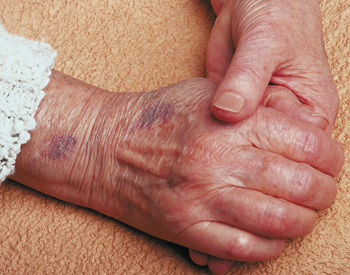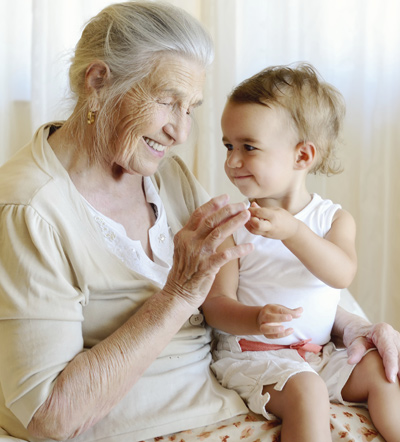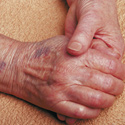Bruising In Older Patients
“I promise I don’t beat him” chuckled the ninety-one pound octogenarian about her husband’s black and blue forearms and hands.
I have been surprised with how much concern and worry there is around bruising of the forearms in my older patients. I personally have distinct memories of my grandparents’ arms being black and blue at times; sometimes with little tears. I think I just assumed everyone knew this was not unusual. Granted it does not happen to everyone. But it is so common that I was always a little perplexed when patients seem confounded by it. But one day I asked, “I understand you are concerned. But don’t you have friends your age that this is happening to also?” And the man’s answer put it all in perspective for me: “Yes, but I never figured it would happen to me!”
Skin Changes With Age
As we marinate through the decades, our skin thins. You feel the biting of the cold winds and the burn of the hot sunshine more intensely than your younger days. “Doc, I just can’t tolerate the sun like I used to. My skin reacts differently,” is a comment I often hear. The thinning of the skin makes nerve endings more susceptible to changes in temperature, water loss, and trauma. You may have noticed you are dry and itchy more than ever. The moist spongy skin separating you from our Sahara like dry summers loses its thickness with time. There is literally less between you and the world around you as there once was. To add insult to injury, the rules of fat distribution are rewritten to cause our guts to bulge but our forearm fat to shrink. This fatty forearm layer cushions the web of small blood vessels in our arms, protecting them from minor trauma. It is when this fatty layer goes the way of the Dodo that you find yourself getting bruised by the impact of ridiculously minor trauma. Some patients claim even shower water will bruise their skin.

The double-whammy for bruising though is thin skin coupled with blood thinners. Warfarin (Coumadin), aspirin, and Plavix, by design, keep the blood from clotting as it normally would. This is fantastic situation for coronary arteries but embarrassing for the skin. Despite my personal bias and love of skin, I confess the wellbeing of the heart trumps unsightly bruising. Don’t forget about herbal supplements contributing to bruising as well. Fish oils, garlic, ginger, gingko biloba, and vitamin E can all increase your bleeding potential. Vitamin C or K deficiency can also cause bruising but most people likely do not have a problem with this. Your doctor is capable of performing a full medical work up for these conditions if you have concerns.
Treating Bruising
Patients often ask what to do about bruises. I advise most to accept it as a normal but unwelcomed aspect to aging. We really do turn into our parents; and then into our grandparents. Most of the time people will remember their older relatives, long since gone, and shake their heads and smile. “Yep. Granddad’s arms looked about the same.” For those souls not as accepting, I recommend a trial of topical arinica cream or topical ubiquinol compounded with vitamin K. Before you rush out and buy these products, I’d like to tell you that I’ve never seen much improvement, even though a select few patients swear by it. There is new non-prescription cream marketed just for this issue called Dermend. It is available at most retail pharmacies for about $20. I am reserving my opinion on its efficacy for now but it is made by a very reputable company.
Probably the best outlook on this subject belonged to my grandmother. The last ten years of her life, her arms looked like she’d been in a weekly car wreck. “Oh I just flap these arms around like a true American: red, white, and blue!”

